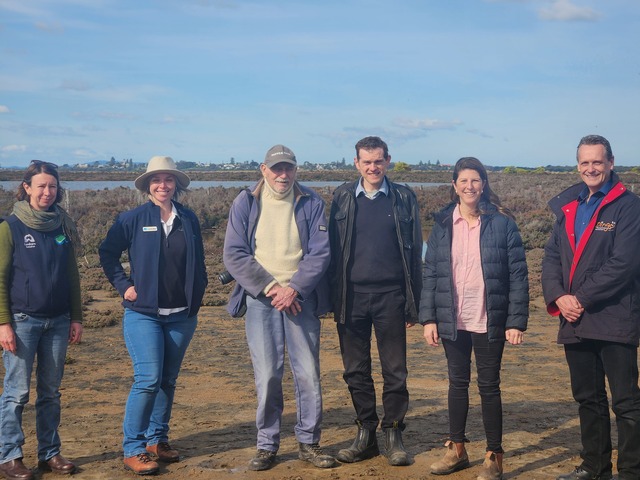Local marine environments have been given a funding boost after Member for Bellarine Alison Marchant announced the recipients for this year’s Port Phillip Bay Fund.
State government grants of up to $300,000 were available for innovative, large-scale projects, while smaller projects received up to $25,000 to directly benefit the coastal and marine environments of the bay.
Successful recipients on the Bellarine include:
Corangamite Catchment Management Authority was successful in receiving funding of $179,818 for its Swan Bay Saltmarsh Restoration Project. This project aims to protect and restore one of the most productive and biodiverse ecosystems, the intertidal saltmarsh surrounding Swan Bay in partnership with Bellarine Landcare Group and private landowners.
Bellarine Bayside Foreshore Committee of Management received $143,476 for its North Bellarine Coast Cultural Conservation and Restoration Project.
Bellarine North Rotary Club received $2000 for its Foreshore Revegetation Project.
Borough of Queenscliffe was given $25,000 for Community Education and Protection of Coastal Moonah Woodlands Project.
“Conserving the saltmarshes of Swan Bay is important to maintaining shorelines, protecting communities, keeping marine ecosystems healthy, and helping coastal economies thrive,” Corangamite Catchment Management Corinne Mays said.
“We are thrilled to be able to work with landowners and communities around Swan Bay to deliver positive environmental, social and economic benefits for
the Bay.”
“Victoria is fortunate to have so many dedicated volunteers, environmental, community and not-for-profit groups and organisations that are working hard to preserve our marine and coastal environments,” Alison Marchant said.
Port Phillip Bay is home to more than 10,000 species of marine life, making it one of Victoria’s most important ecosystems. It also remains a major tourist destination supporting recreational activities such as swimming, fishing and snorkelling.









